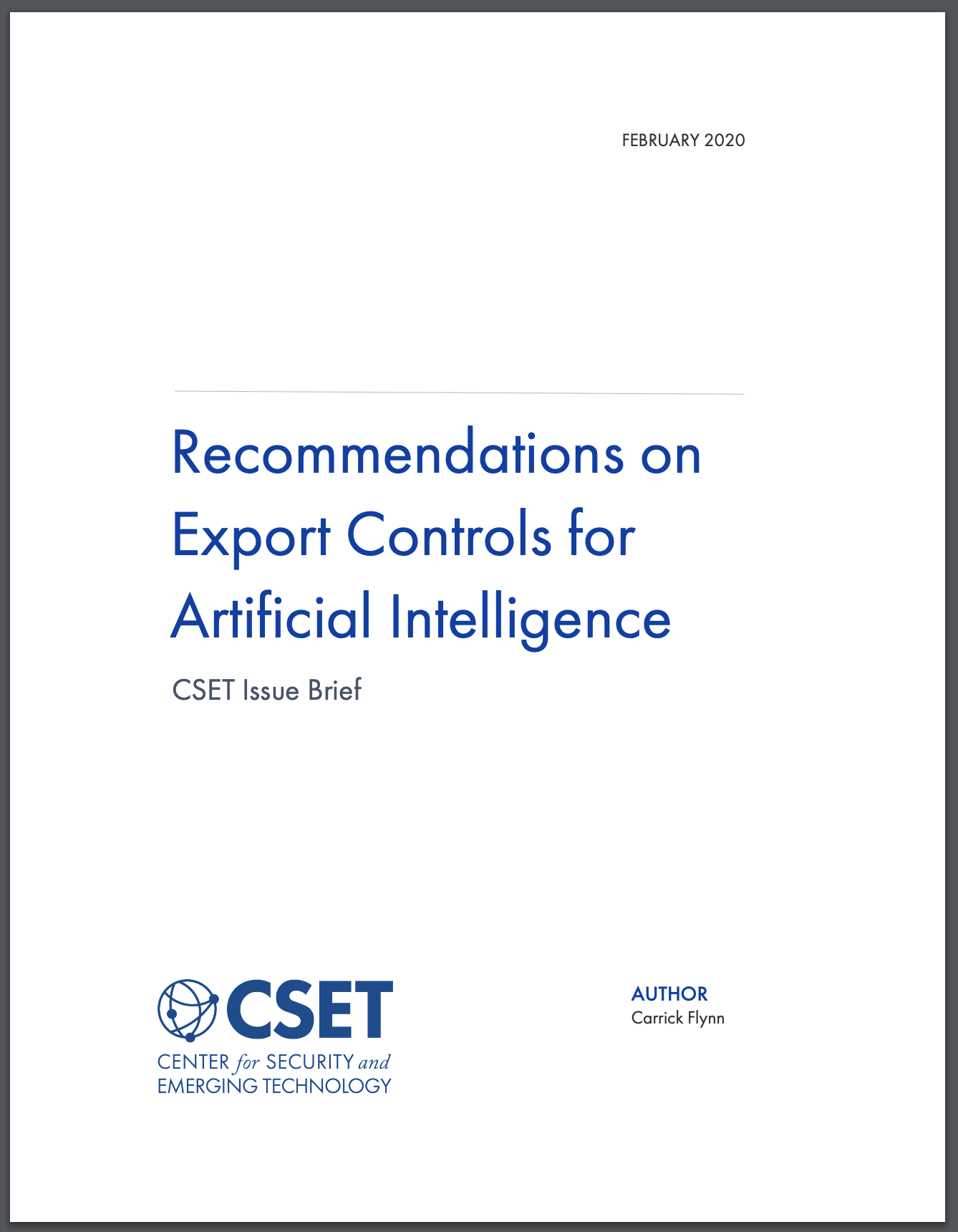The U.S. government has recently begun to pay close attention to the export of artificial intelligence 1 and AI-relevant technologies.2 In addition to AI’s economic importance, it has a range of applications relevant to national security and human rights.3 There are substantial national and global security risks if democratic nations lose their current lead in AI. Yet as the Department of Commerce has acknowledged, export controls are complicated policy tools that require the careful balancing of competing interests and priorities.4
This paper clarifies the stakes by reviewing and assessing options for export controls on AI software, algorithms, data sets, chips, and chip manufacturing equipment. The key takeaway is that chip manufacturing equipment is likely to be a highly effective point of export control, with other areas likely to be either ineffectual or affirmatively damaging to the interests of the United States and its democratic allies.
To summarize our findings more thoroughly:
- New export control regulations on general purpose AI software, untrained algorithms, and datasets without military use are unlikely to succeed and should not be implemented. Such regulations would potentially undermine U.S. competitiveness and damage the U.S. government’s relationship with leading AI firms and the AI R&D community.
- Highly application-specific AI software, trained algorithms, and militarily sensitive data sets are useful targets for export control, but are already covered by the current export control regime. Natural extensions of current export control approaches targeting end uses and end users would cover existing and foreseeable export control needs in these areas. Enforcement is also likely to be easier than in the above cases, though still difficult.
- Equipment for manufacturing AI chips is likely a highly effective point of export control. Controls on such equipment effectively constrain who will be able to produce cutting-edge AI chips in the future. The design and production of such equipment requires advanced capabilities and rare expertise, and existing firms are based in a small number of democratic countries that are US allies.
- The effectiveness of export controls on AI chips will depend on early implementation of export controls on chip manufacturing equipment. AI chips themselves are not yet a promising target for expanded regulation. Export controls on AI chips without prior imposition of export controls on the equipment for manufacturing such chips will likely prompt targeted countries to invest in chip manufacturing capacity, achieve import substitution, and erode the supply chain advantage held by the United States and democratic allies.
Download Full Report
Recommendations on Export Controls for Artificial Intelligence- In this report, I am using the term “AI” to refer to artificial neural networks, though AI is a broader term that can also apply to other approaches.
- The Export Control Reform Act of 2018 tasked the Department of Commerce (DOC) with considering export controls for emerging technologies (H.R. 5040, 115 Cong. 2018). The Bureau of Industry and Security (BIS) within the DOC then announced an advance notice of proposed rulemaking (ANPRM) indicating that they are considering export controls for AI and AI related technologies (Department of Commerce, 2018).
- Defense Innovation Board (2017). Flynn (forthcoming).
- From the ANPRM [see footnote 3]:
In identifying emerging and foundational technologies, the process must consider:
• The development of emerging and foundational technologies in foreign countries;
• The effect export controls may have on the development of such technologies in the United States; and • The effectiveness of export controls on limiting the proliferation of emerging and foundational technologies in foreign countries.
